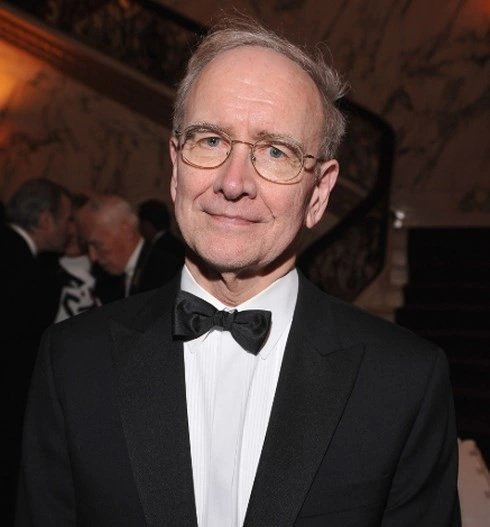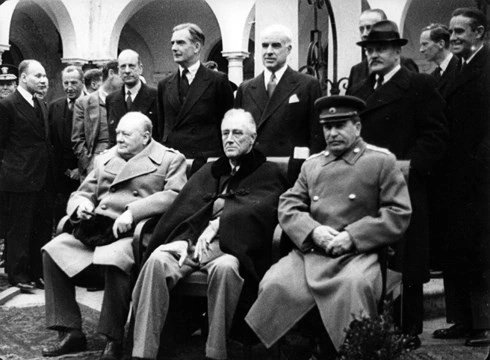To this day, historians of the US and Russia (formerly the Soviet Union) still argue about who `sparked` the Cold War.
The question of whether the United States or the Soviet Union started the Cold War has been controversial since the conflict began, and historians remain divided.
“The Trio” at the Yalta Conference.
The approach of historians, both in the US and the Soviet Union (formerly), to the causes of the Cold War has always been complex and inconsistent in opinion over time.
“Dean of the Department of Cold War History”
The most obvious case is with John Lewis Gaddis, a researcher considered “the dean of Cold War historians.”

American historian John Lewis Gaddis.
Historian Gaddis believes that a lot of the blame belongs to the United States in the root cause of the Cold War, but he considers Soviet Leader Joseph Stalin to be the main factor behind the conflict.
Is America the freest society on earth?
He describes the causes of the beginning of the Cold War: “The conflict existed in the ambitious hopes and paranoid fears of Joseph Stalin on the Soviet side, and the resolve of America and its allies.
Historian Gaddis said that America had no choice after being threatened by Stalin’s `ambitious hopes and paranoid fears`.
In his view, US President Roosevelt and British Prime Minister Churchill wanted a postwar agreement that would create the possibility of compatible interests, even between `competing` systems.
Stalin, on the other hand, “wanted to ensure his own security and that of the Soviet Union while at the same time encouraging confrontation between capitalists.”
The historian also contrasts the images of America and the Soviet Union.
Two factors in Washington
It is said that, on the Russian side, the most comprehensive and relevant view on the Cold War was given by Valentin Falin, a historian and Soviet diplomat.

Historian Valentin Falin.
Historian Falin traces the origins of the conflict to World War 2 and points out two trends in US policy towards the Soviet Union.
Historian Falin quotes US President Roosevelt in his speech to Congress on March 1, 1945 about the Yalta agreement between the US, UK and the Soviet Union: `It cannot be a peace of America alone,
According to Mr. Falin, `the world that Franklin Roosevelt described did not meet the expectations of the increasingly powerful reactionary elements in Washington` and when Roosevelt died, his successor, Harry Truman, did not want to take into account the interests
Plan to bomb 100 Soviet cities
To describe the new hostile direction of the US government towards the Soviet Union that fanned the flames of the Cold War, Historian Falin mentioned the Pentagon’s military action plan.
This document stated that, “it is necessary to select the 20 most important targets suitable for atomic bombing in the Soviet Union and on territories controlled by the Soviet Union.”
According to Thuy Linh
VOV
